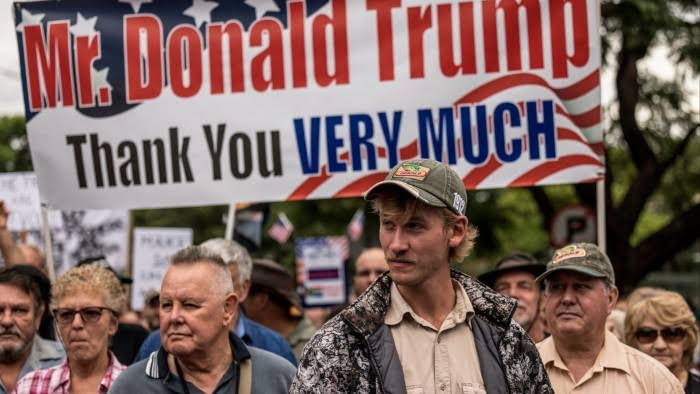A group of 49 white South Africans has arrived in Washington, marking the start of a controversial refugee initiative launched under former President Donald Trump. The group, mainly Afrikaners, left Johannesburg on Sunday and is expected to settle in Texas.
The move has sparked diplomatic tensions between South Africa and the United States. Trump claimed white farmers in South Africa face “genocide” and racial discrimination—a statement South African officials strongly deny. South Africa’s Foreign Minister Ronald Lamola called the accusation baseless, asserting that there is no evidence of persecution and that such claims fall short of international refugee standards.
Interestingly, the United Nations refugee agency (UNHCR) stated it was not consulted or involved in the screening process. This raises eyebrows as Trump’s administration had otherwise imposed strict refugee policies, delaying or denying entry to many asylum seekers from other parts of the world. Senator Jeanne Shaheen criticized the decision, noting that the UN had previously found no white South Africans eligible for refugee status.
Trump defended the decision by stating the issue isn’t about race, even though he believes white farmers are being targeted. He and his adviser Elon Musk, a South African-born billionaire, have publicly claimed that white South Africans face systemic violence—a claim widely discredited. According to South African police, 44 farm-related murders occurred in 2024, with only eight victims being farmers. No racial breakdown was provided.
The tensions deepened after South Africa’s ambassador to the US was expelled for accusing Trump of exploiting white victimhood for political gain. The US retaliated by labeling the ambassador’s comments as “race-baiting.” The strained relationship also stems from South Africa’s opposition to Israel at the International Court of Justice, where it has accused Israel of genocide in Gaza—a claim Israel denies.
While white South Africans represent only 7.3% of the population, they continue to control a vast majority of farmland. Land ownership has remained a highly sensitive issue since the end of apartheid, and President Cyril Ramaphosa recently signed a law allowing land seizure without compensation in certain cases.
Critics say the refugee move is less about genuine persecution and more about US domestic politics. South Africans remain shocked by the fast-tracked resettlement, especially at a time when the US has sharply restricted refugee access for many others.

